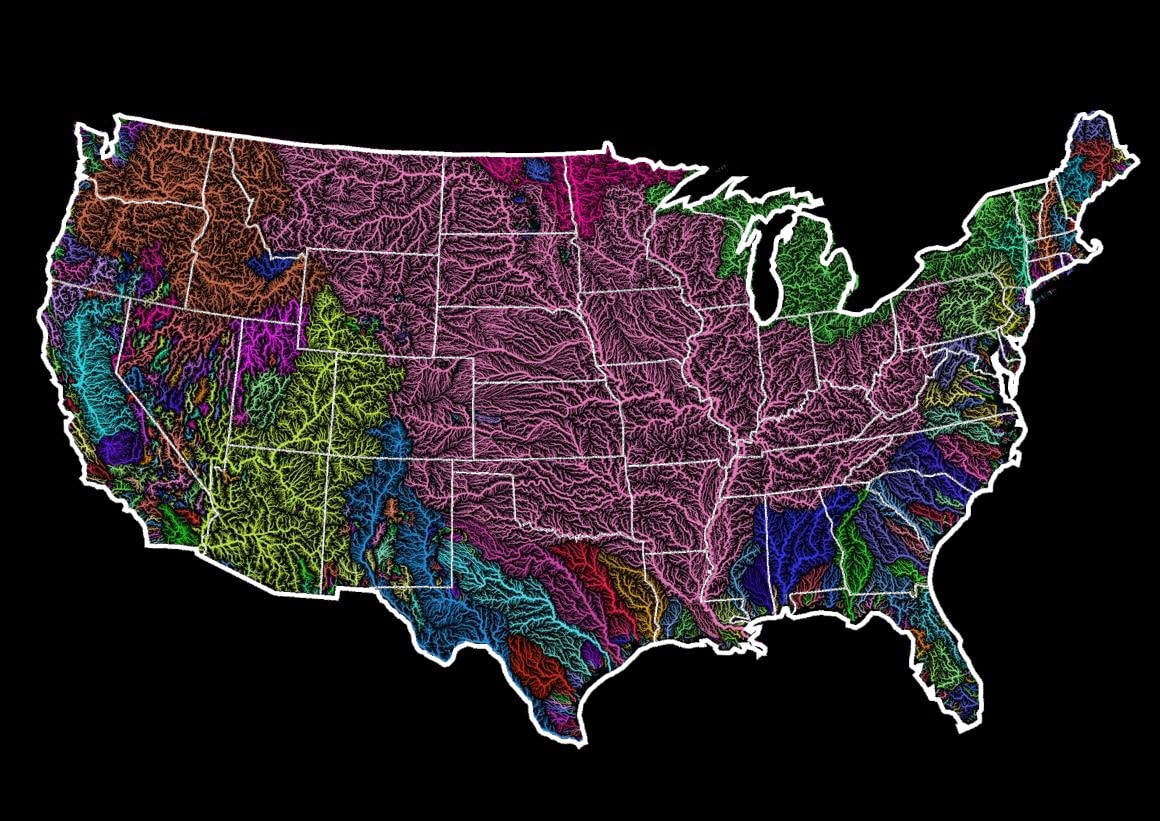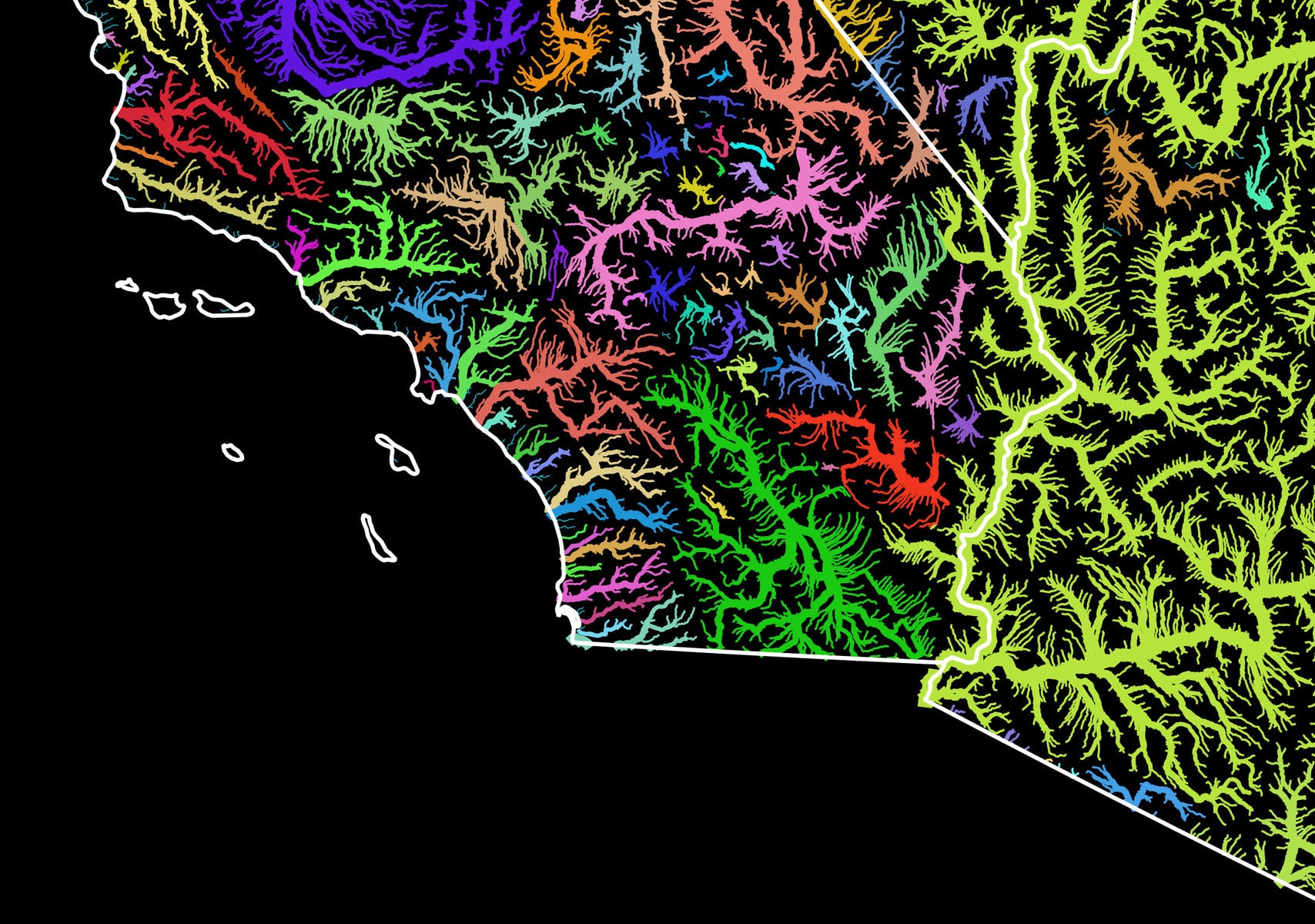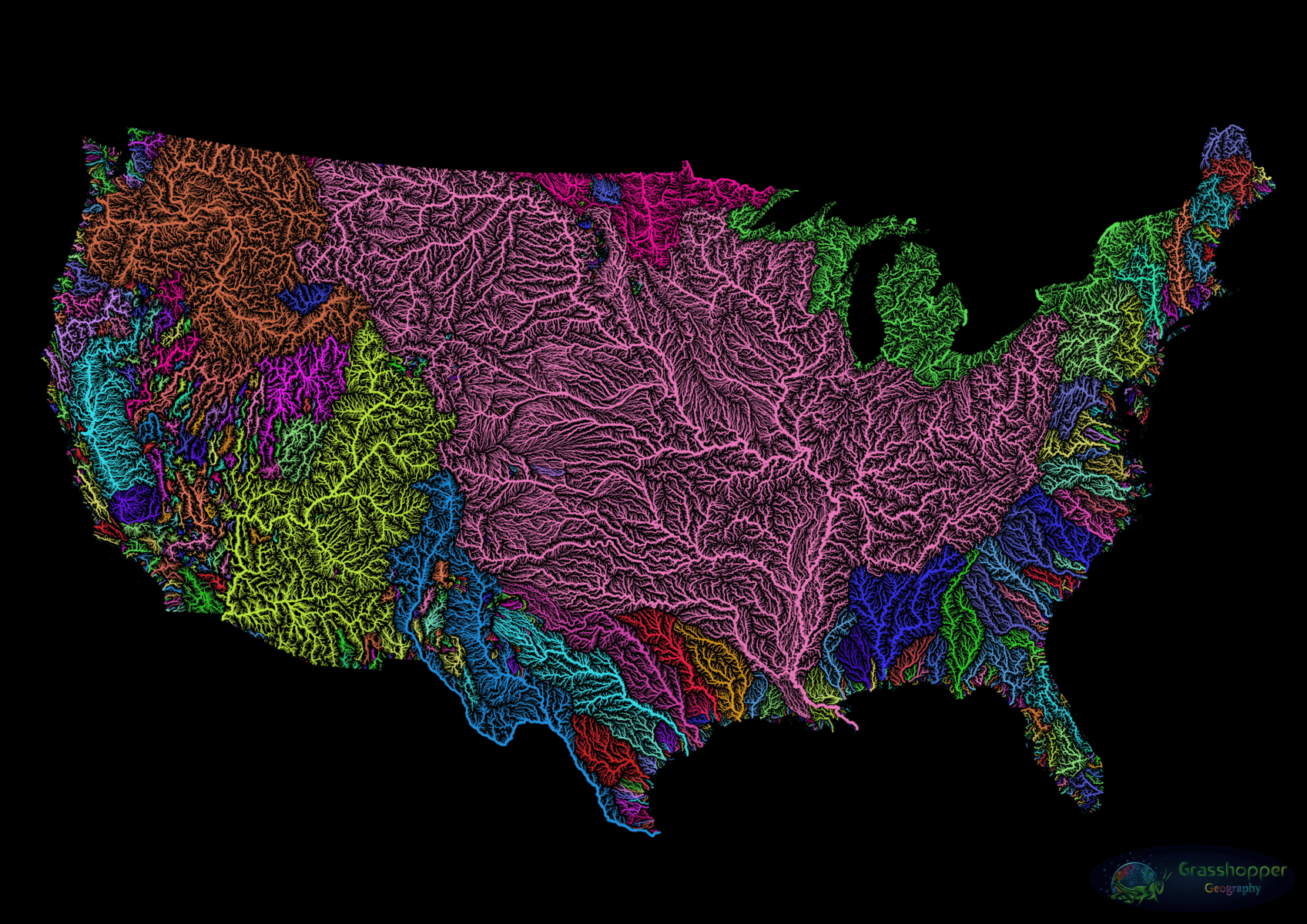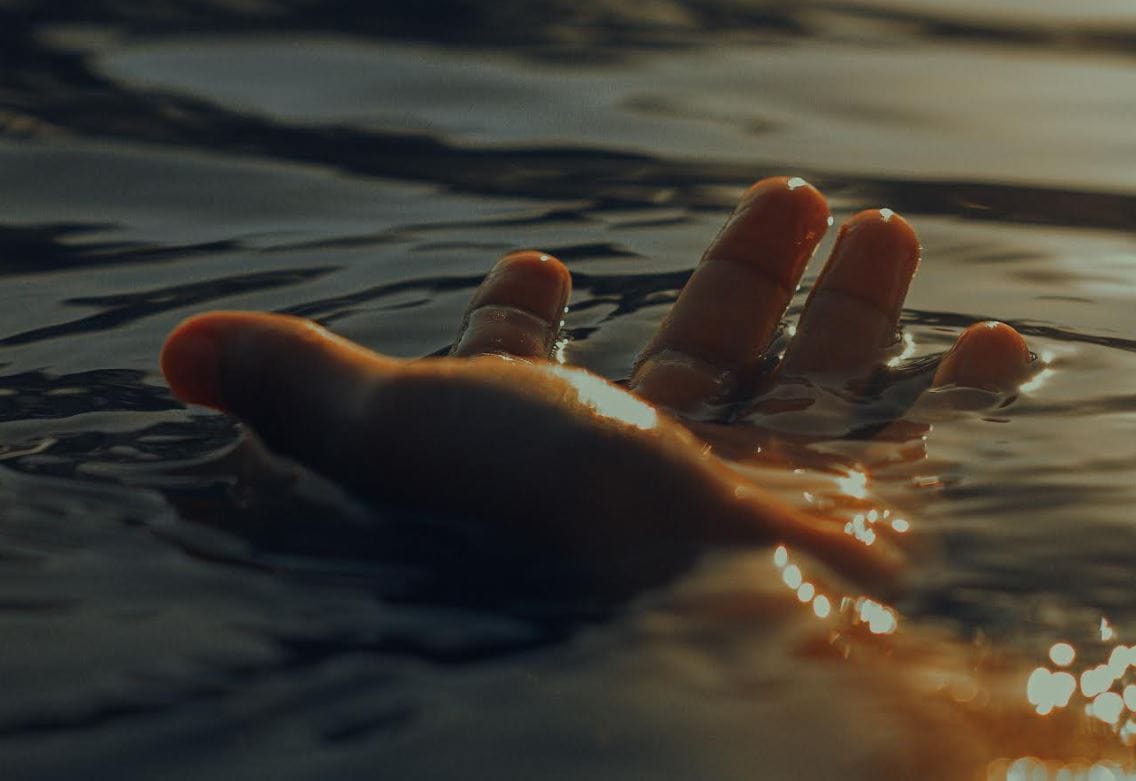
A watershed map of the United States (with state boundaries) https://cascadiaunderground.org/watershed-map-united-states-cascadia-szucs-robert/
What is a watershed?
As defined by the National Oceanic and Atmospheric Administration (NOAA), a watershed is a land area that channels rainfall and snowmelt into creeks, streams, and rivers, eventually to outflow points such as lakes, reservoirs, bays, and the ocean. To put it plainly, watersheds are defined by their ridges and their outlets.
In our everyday lives, we see watersheds in our roadways, in the way that water falls on our homes, and in how water either pools on the soil or flows to the closest storm drain. In the urban context, we see this water collecting dust, pollution, and debris and being swiftly drawn underground, only to taint the nearest body of water. For us in the Los Angeles River Watershed, much of this impacted water flows into the Pacific Ocean.
If and when we meditate on this, it can only be disheartening to know that the oceans we love and want to protect have become the catchment basin for our unconscious lifestyles. By unconscious, we mean an almost helpless condition of stasis due to what we have inherited…the ever-present massive concrete infrastructure put in place ages ago. What do we do about this? Or more importantly, how can we be in regards to this understanding?
The proverb “it may not be our fault, but it is our responsibility” comes to mind.
Human beings are made up of anywhere between 55-78% water, based on age and sex. In a sense, we are all watersheds. We absorb water through eating and drinking, and we eventually release it. The spirit of water moves through us daily. We are traveling watersheds. How cool is that? We also are catalysts with regards to how water moves around us. By catalyst, we are referring to our role in how water is misused, honored, or abused.
Here we are, born into a world and culture that has lost its deep connection to a key element that our existence depends upon. Second to oxygen, water is the next most important requirement for our bodies to survive, and the current civilization has unconsciously found numerous ways to diminish its capacity to heal and restore us.

A quick glance at the many watersheds across Southern California https://cascadiaunderground.org/watershed-map-united-states-cascadia-szucs-robert/
It’s enough to make you cry. Grieving water is a part of the healing process. When we cry, our tears release stress hormones and natural painkillers. Emotional (psychogenic) tears play an important role in the balancing of stress hormone levels. Let the water in your tears flow! After all, “the cure for anything is salt water – tears, sweat, or the sea,” says Isak Dinesen.
All beings and elements are part of the global, regional, and site-specific watersheds. It is possible to enhance our roles and responsibilities to preserve and protect natural, living systems. Our energies could be refocused if we take lessons from the elements. We could trust in our breath (air) to guide us, to slow us down, to look within, and focus on our “why.” We could rely on our seat, our grounding to this Earth, to remind us of our belonging and responsibility to our home. We could fan the ember (fire) within each of us and bring light and warmth to seemingly cold, dark places in our lives. And we can and should embody the depth and strength of the most powerful element: water. Water is so powerful that it can carve stone and spring life into being. Our relationship to water mirrors our relationship to ourselves.
When we honor water through conscious use, preparing soil for maximum absorption, and inviting its presence to stay and then move on….we have embodied the mighty watershed.
We are ALL watersheds…let it flow!

A watershed map of the United States (without state boundaries) https://cascadiaunderground.org/watershed-map-united-states-cascadia-szucs-robert/

